by Andrea Scrima
Oh patria mia, mai più ti rivedrò!
Mai più! Mai più ti rivedrò!
O cieli azzurri o dolci aure native
Dove sereno il mio mattin brillò
O verdi colli o profumate rive
O patria mia, mai più ti rivedrò!
(Oh my homeland, I will never see you again!
No more! Never see you again!
Oh blue skies and gentle breezes of my village
Where the calm morning shone
O green hills and perfumed shores
O my homeland, I will never see you again!)
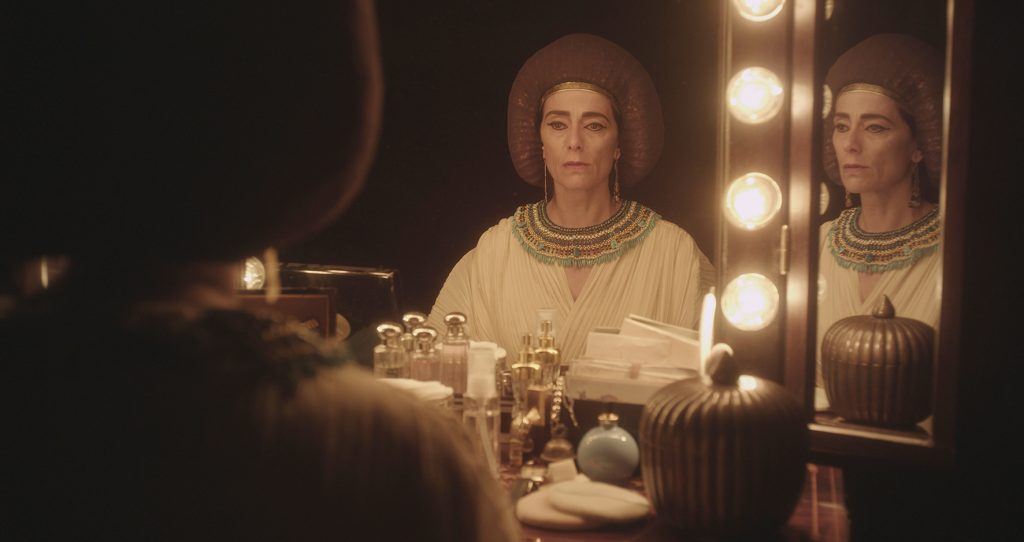
Giuseppe Verdi’s opera Aida premiered at the Khedivial Opera House in Cairo on December 24, 1871. A century and a half later, David Krippendorff sets his film Nothing Escapes My Eyes, which won the Berlin Short Film Festival in 2016, in a parking garage on Meidan el-Opera, or Opera Square, erected after the opera house was destroyed by fire. Verdi’s aria Padre, a costoro schiava non sono provides the soundtrack for a work that embodies nostalgia and absence in a precision of ambiguity that does not seek to reenact the opera, but present it as a metaphor within a metaphor, one uniquely suited to express the drama of identity with all the intensity it possesses in an individual’s life.
The story is well-known: Aida has been captured and enslaved by the Egyptians, who are unaware that she’s a Nubian princess. Radamès, the man she loves, is chosen to lead the army against her father, King Amonasro, who invades Egypt to liberate her. Aida is torn between her loyalty to her country, her father, and her lover and is horrified to find herself praying for Radamès’s triumph. When the Nubians are conquered and her father is taken prisoner, Amonasro presses upon his daughter to lure the victorious warrior into revealing the positions of the Egyptian army. Aida betrays Radamès, who is subsequently tried for treason and sentenced to death; she then sets out to die with him as the two profess their immortal love for one another.
Various texts served as inspiration for Krippendorff’s film, but as an artist with American and German citizenship who grew up in Italy, Verdi’s music resonated with him in a particular way. For a piece centered around cultural identity and longing, Aida, which suggests that we consist of a multiplicity of selves in conflict with one another, provides an evocative context. There are many ways to read Nothing Escapes My Eyes, and many ways to determine what, in the final analysis, home really means. It hardly matters if our earliest experiences were happy or unhappy, nurturing or destructive—it is the reality-constituting effect of childhood, its burning emotional clarity, that resonate with us throughout our lives. Krippendorff’s decision to shoot on a square that carries a phantom name was a decision to adopt a frame of reference that endures long after it ceases to exist. Yet while home and family are two of our main sources of melancholy and loss, many of us acquire a large portion of our identity elsewhere.
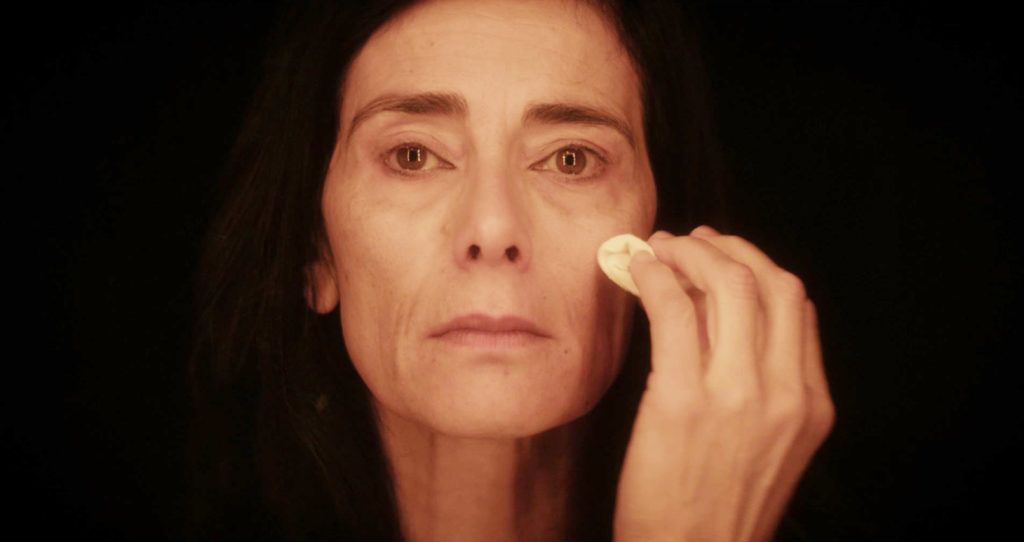
When the Israeli-Palestinian actress Hiam Abbass takes off her Egyptian headdress and wipes off her make-up, the pain her character experiences can be interpreted in several ways. Her reluctance to part from a beloved garment that is essentially foreign to her Nubian origins suggests that she’s not returning to a truer former self, but losing the very essence of what she has, in the meantime, become. Forfeiting a former allegiance has been the price she’s paid for reinventing herself, and this forfeit is now avenging itself in unforeseen ways. She undergoes a stripping down of identity, a removal of layers that leaves her not in an original state, but weakened and exposed.
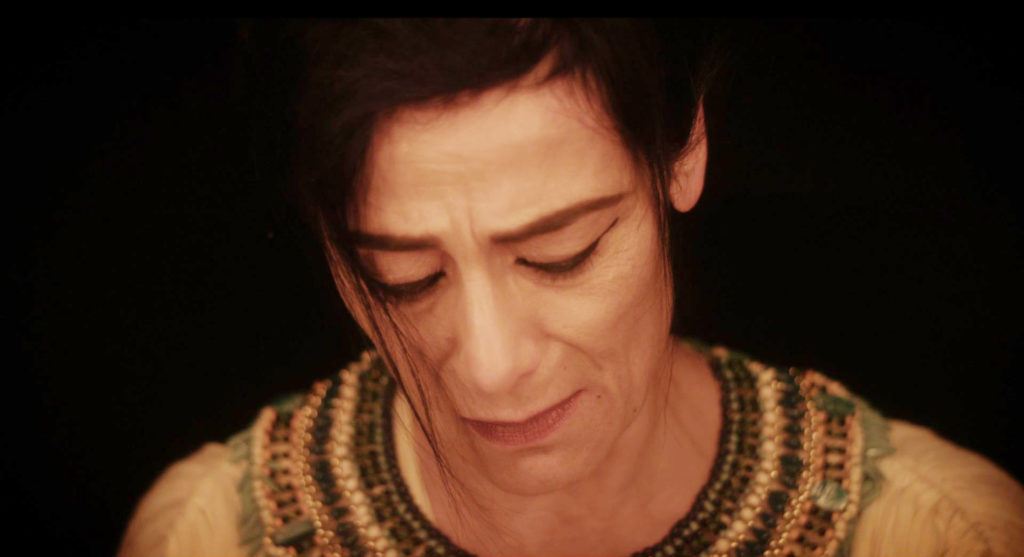
Nothing Escapes My Eyes seems to say that embracing a foreign culture changes us, that this process is a natural one, and that an identity forged between cultures or contexts is always a hybrid identity, one predicated on the merging of disparate parts to create a new whole. There is no “pure” form; the adulterated product is the “real” thing. Diverging from the Aida reference, however, Abbass could simultaneously be enacting the agony of exile, of having to conform to a dominant culture. There is a major difference between voluntarily leaving one’s home and being forced to flee: the pressure to assimilate to something alien is perceived as a form of assault, leading to a crisis of identity that is further exacerbated by the restrictions and misguided good intentions of the hosting country.
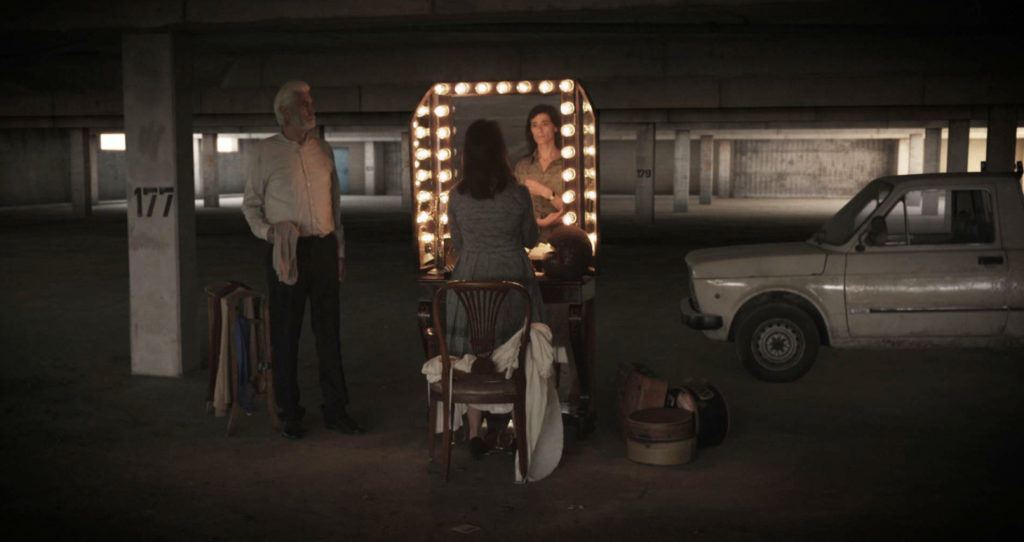
In a time of globalized movement, as large sections of the world’s population are displaced by violence and poverty, Krippendorff’s film remains intentionally multivalent. Identity is not a static state, but a time-based process; home is a mutable term, subject to interpretation. Experience changes us, makes us who we are, and as many migrants and refugees painfully discover, their native countries change, as well; they become unrecognizable or cease to exist altogether. It happens quickly: governments are overthrown, social orders upturned, and ties to history and tradition are severed, sometimes irreparably. And then a younger generation emerges with no memory of what came before, for whom the status quo is the only reality they know.
Whatever the circumstances of our leaving and returning, it is we ourselves who become strangers—by virtue of the very fact that we have not, in our absence, changed along with our homeland, but elsewhere, under different conditions and in response to different challenges. We see as others, think as others; we no longer belong. Time has transformed us, and a return to the place we once came from is no longer a return to a real or more genuine self, but a disturbance of identity, a disjointedness. Homesickness, particularly for a place that no longer exists, is a powerful force—and while the guilt the exile feels is immeasurable and for the most part incommunicable, there is no absolution, no reparation, and no return.
***
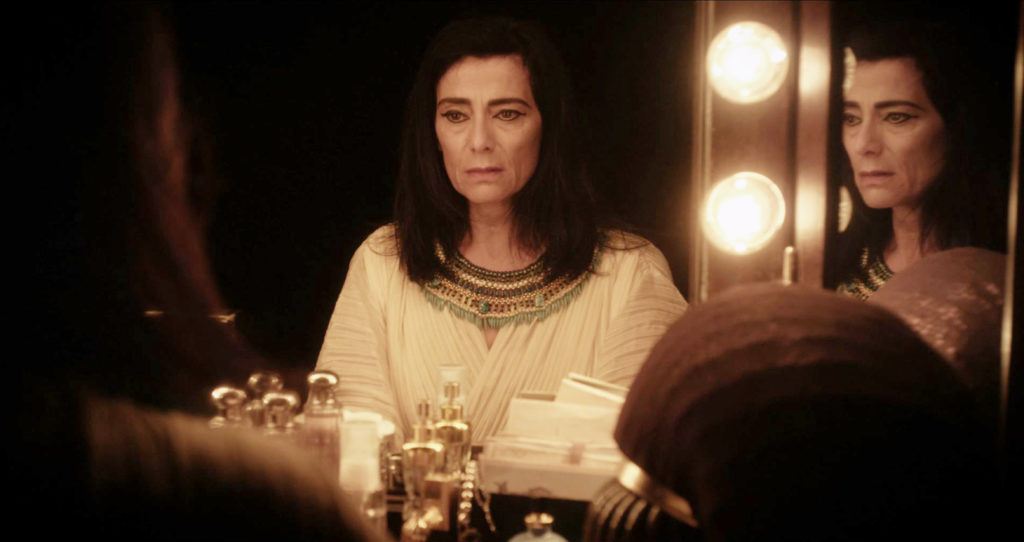
Nothing Escapes My Eyes won “Best Short Film” at the Berlin Short Film Festival and the San Giò Verona Video Festival in Italy; it continues to be shown internationally in film festivals and exhibitions, most notably at the Redtory Museum for Contemporary Art in Guangzhou, China; the Aram Art Museum in Seoul, South Korea; The Museum on the Seam in Jerusalem, Israel; and the Belgrade City Museum in Serbia.
This winter, David Krippendorff will be shooting his third film, titled Appropriation, with Hiam Abbass, known to a wider audience through her roles in the HBO series Succession and the HULU series Ramy as well as her previous work with Stephen Spielberg (Munich), Ridley Scott (Exodus), and Denis Villeneuve (Blade Runner 2049). Together with Nothing Escapes My Eyes and Kali, Appropriation forms a triptych of films inspired by music that address historical wounds, identity, and cultural displacement.
Kali is a monologue based on Nina Simone’s rendition of the Brecht/Weill song Pirate Jenny from The Threepenny Opera, performed in Arabic by Hiam Abbass. Appropriation is inspired by Ravel’s version of the Kaddish, the Jewish prayer for the dead.
Read an interview the author conducted with David Krippendorff here.
See a short clip of Nothing Escapes My Eyes here.
New work by David Krippendorff is on view in the exhibition “Fragility,” curated by the Katharina Maria Raab Gallery for SOMA Art Space Berlin. September 11 – October 16, 2021.
